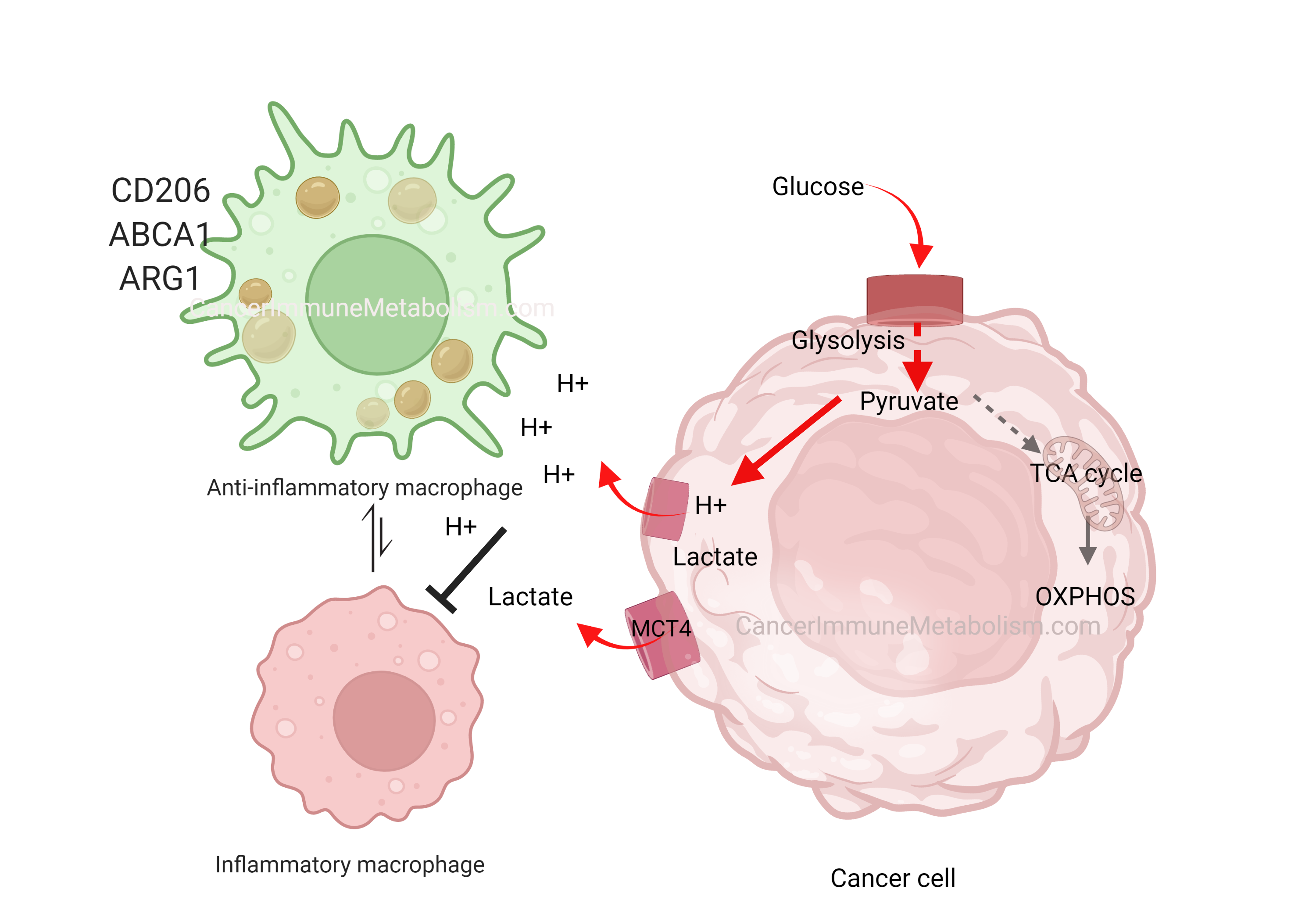El-Kenawi, et al., 2019, Cancer likes it sour!
In his early work, the great Otto Warburg was the first to describe cancer cells’ preference to metabolize glucose into lactate even in the presence of oxygen, a phenomenon termed aerobic glycolysis. Although aerobic glycolysis is an inefficient way to generate cellular energy (producing 2 ATP molecules versus oxidative phosphorylation’s 36 ATP), it provides cancer cells with proliferative advantages because:
- It facilitates the uptake and incorporation of nutrients into the growing biomass (Reference)
- Metabolic products like hydrogen ions and lactate acidify the extracellular space, creating harsh conditions that kill normal cells while allowing tumor expansion (Gatenby and Gillies, 2004)
In El-Kenawi, et al., 2019, we demonstrated that acids released by cancer cells can polarize macrophages toward a pro-tumor phenotype. As versatile immune cells, macrophages adapt their function based on microenvironmental cues. By acidifying their surroundings, cancer cells effectively neutralize macrophages’ cytotoxic potential. This prostate cancer-induced macrophage reprogramming was marked by cytokine release and upregulation of CD206, ARG1, and the cholesterol transporter ABCA1—findings that motivated our subsequent investigation of macrophage cholesterol metabolism in later work.
